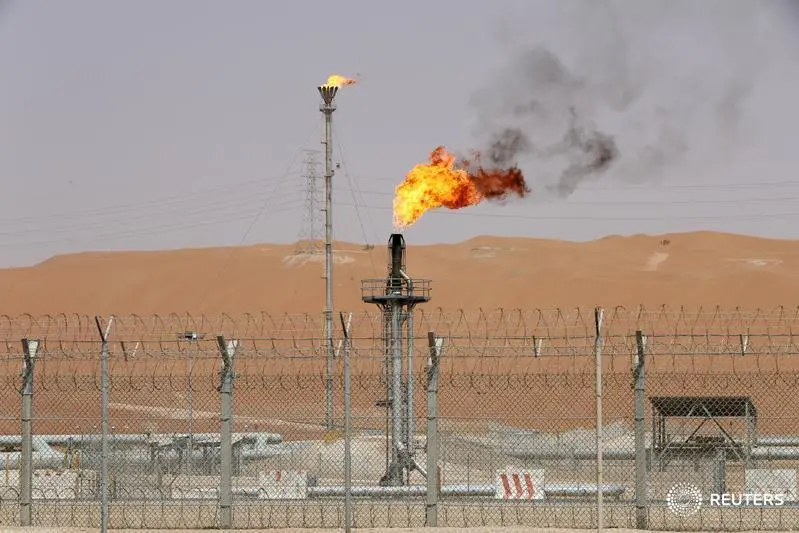PHOTO
LONDON/DUBAI - Dollar-denominated bonds issued by Saudi Arabia's government and state-oil firm Saudi Aramco tumbled to multi-week lows on Monday following a weekend attack on Saudi Arabia's oil facilities that shut about 5% of global supply.
Saudi Aramco's longer-dated bonds bore the brunt of the falls with the 2049 issue dropping nearly 3 cents in the dollar to touch their lowest since early August, data from Tradeweb showed.
The government sovereign bonds also came under pressure, with longer-dated issues falling between 1-2 cents.
"Markets had become too sanguine over the last few months about the geopolitical risks facing countries allied with the US against Iran, with Saudi Arabia particularly vulnerable," said Patrick Wacker at UOB Asset Management.
"While Saudi Arabia’s sovereign fundamentals are still firm, bond prices will need to factor in higher geopolitical risk going forward."
On Monday, Saudi stocks gained 0.5%, with analysts pointing to support from state institutions as well as higher oil prices supporting firms. Yet the gains only partly mitigated a 1% drop on Sunday, with the index down 0.4% since the start of the year.
Blue chip Saudi Basic Industries Corp (SABIC) gained 0.6% after tumbling nearly 3% on Sunday when the company said it had curtailed feedback supplies by about 49% following the attacks.
"The critical issues for Saudi Arabia and the global oil market are the extent of the damage and the time required to restore Aramco's oil and gas supply," said Monica Malik, chief economist at Abu Dhabi Commercial Bank, adding the short-term impact could be partly mitigated by the kingdom drawing down strategic oil reserves.
"We estimate that Saudi Arabia's fiscal deficit could widen by some 0.9-1.0% of GDP under the scenario mentioned above, though oil revenue would see some support from the higher oil price as production and exports gradually normalize.”
The International Monetary Fund estimates Saudi Arabia could hit a fiscal deficit of 6.5% of GDP compared with 5.9% in 2018, as higher government expenditure is likely to curb the upside of stronger non-oil economic growth.
(Reporting by Karin Strohecker in London and Hadeel Al Sayegh and Saeed Azhar in Dubai Editing by Tommy Wilkes and Louise Heavens) ((karin.strohecker@thomsonreuters.com; +442075427262; Reuters Messaging: karin.strohecker.reuters.com@reuters.net))





















